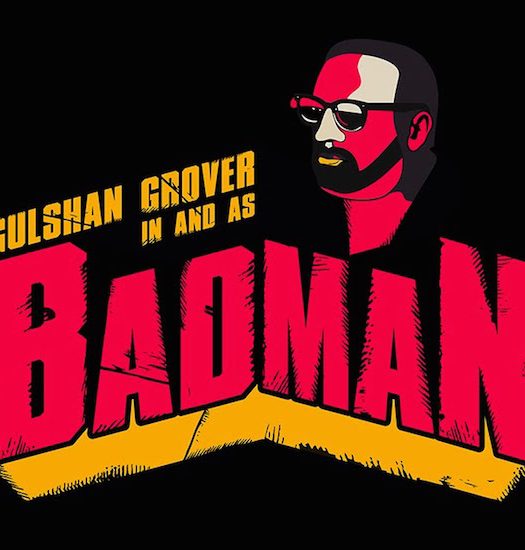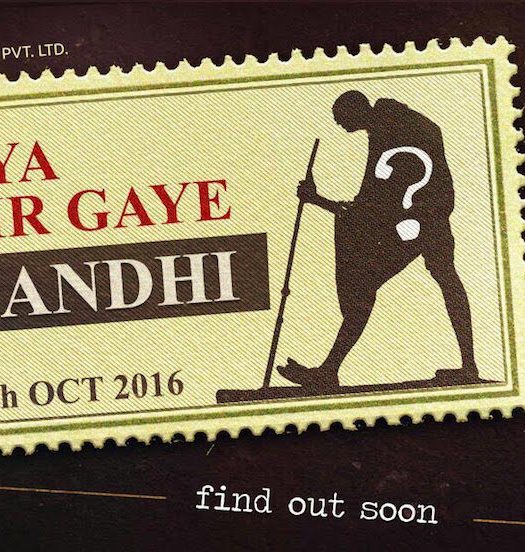1869 wins Best Direction award, at the ‘20th International Children’s Film Festival’
1869 – touted as India’s first period short film, directed by film maker Pranav Harihar Sharma and jointly produced by Gang Motion Pictures and Inorbit Bachha Bollywood brought accolades at the ‘20th International Children’s Film Festival’ which concluded on the 14th November 2017 in Hyderabad.
Pranav Harihar Sharma won the ‘Golden Elephant trophy for best Direction’ for his short film -1869, at the prestigious festival.
The festival received more than 3000 entries from across the world, of which around 300 entries were shortlisted for the screenings under various categories. From those 300 entries ‘1869’ was awarded the ‘Golden Elephant for best
Direction’ under the ‘International Shorts Live Action’ Category. Renowned Ad filmmaker, Pranav Harihar Sharma after a thorough 6 months research , developed the idea, script, screenplay and dialogues of the movie ‘1869’. He shot the film over two days in an elaborate set built in Mumbai. Set in a 19th Century Victorian Hospital in India under the British Raj, the story revolves around three orphaned children, who set about solving the mystery of a missing new born. Produced by Gang Motion Pictures, this 25-minute film is one of the most expensive short films made in India.
This period drama witnessed exceptional performances by the young talented kids- Vedanth Dattani, Kabir Sajid (Secret Superstar Fame) and Abhishek Pathak, who matched the performance of the multi-talented actor, Raghubir Yadav. The film was backed by strong performances by the supporting cast of Kiran Khoje, Beena Banerjee, Vijay Kumar and Chris Peter.
Commenting on the win, the director Pranav Harihar Sharma said, “1869 is the result of the blood and sweat of the entire cast and crew. It belongs to everyone who was there with us during the exhaustive process of the research of the period in terms of art, costume, language and the overall era which took over six months. It also belongs to everybody who was on set during our grueling shoot of two days and nights. Shooting it in itself was an exceptional experience and getting recognition is like a cherry on the cake. Shooting a short film in India is tough and if it’s a period short film then the job becomes next to impossible. But I value the kind of support I got from my producers at Gang Motion Pictures and Inorbit who not only funded the project but also gave me total freedom to make the film the way I wanted to. Getting a ‘Golden Elephant for best direction’ makes me happy but I would have been happier if the film would have won the ‘Best Film’ trophy. “

1869
Adding to it Sreeram Ramanathan, Creative Producer, Gang Motion Pictures said, “1869 is our foray into the world of short films. The film took almost a year to make and included a lot of pre-production. The film has a huge canvas and as a producer it was my responsibility to provide the resources so that we could achieve what we all aspired for. I am happy that our efforts have been recognized at such a prestigious platform.”
Sumeet Kamath, Executive producer, Gang Motion Pictures, said, “I always had huge hopes from the film for the sheer reason that it was made with almost zero constraints and based on a very unique script. Almost everyone who has watched the film thinks it’s based on history, but I’m happy to break that belief by quoting that ‘1869 is based on a purely fictional account. Right from scripting to casting and execution, we left nothing on chance and tried to set new standards in short film making in India. I’m happy that the jury saw the merit in our efforts.”
1869 -The first period short film of India was premiered (invite only) on the 1st of October 2016 at the Inox theatre, Inorbit mall, Mumbai. Since then the film was screened at various National and International film festivals like, ‘Cannes
Film Festival’s Short Film Corner 2017, International Documentary and Short Film Festival of Kerala 2017, Los Angeles Cine Fest 2017, Signs Film Festival 2017, Singapore South Asian International Film Festival 2017 and the 20th International Children’s Film Festival, Hyderabad.



